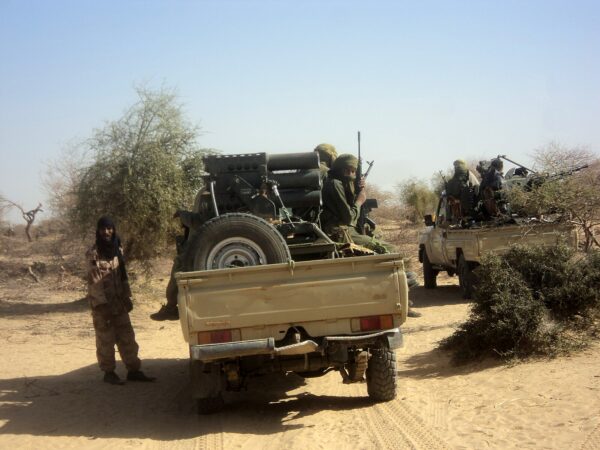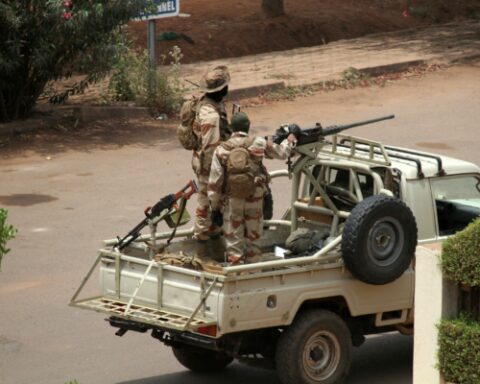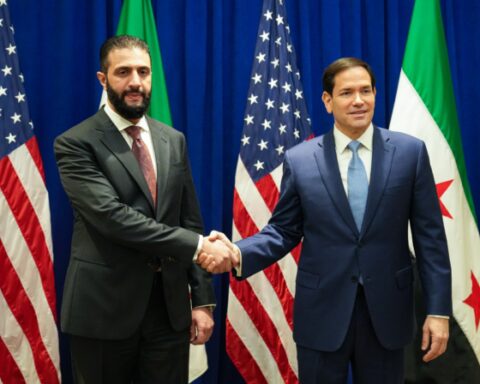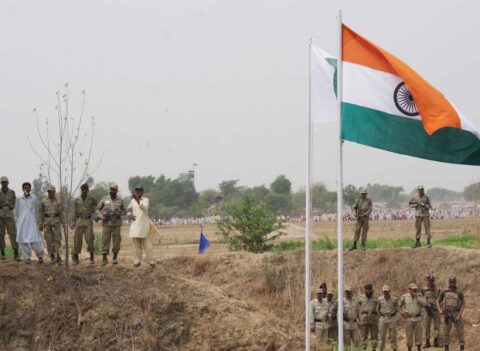Al Qaeda-linked militants are now reportedly tightening their siege on Mali’s capital, Bamako, in what security officials warn could soon mark the first time the U.S.-designated terrorist network gains control of an entire country.
The insurgency, led by Jama’at Nusrat al-Islam wal-Muslimin (JNIM), has steadily advanced across the West African nation, choking off food and fuel supplies and isolating the capital. Local and European officials say the blockade has caused severe shortages, crippling both daily life and the army’s ability to respond.
“The longer the blockade drags on, the closer Bamako comes to collapse,” said Raphael Parens, a fellow at the Foreign Policy Research Institute.
Formed in 2017 from a merger of al Qaeda affiliates, JNIM pledged allegiance to al Qaeda’s central leadership, which has provided training and bomb-making expertise, according to Western and African officials. The group’s gradual encirclement of Bamako mirrors strategies used by Islamist forces in Afghanistan and Syria, which toppled weakened governments after years of attrition.
Dozens of fuel tankers headed for Bamako were ambushed Tuesday, as jihadists armed with assault rifles emerged from the savanna, torched vehicles, and seized the remaining fuel. Footage released by the insurgents showed militants in tattered clothing and turbans celebrating the raid.
A large army contingent stationed nearby in Kati, the junta’s main military base, was unable to respond—out of fuel themselves. “It’s a self-perpetuating cycle,” Parens explained. “To defeat JNIM, the junta needs large-scale ground operations and air support; yet both depend on a steady supply of fuel.”
The shortage has driven the price of gasoline in Bamako to roughly $3.55 per liter—triple its normal cost—and left many stations dry. “Today, there is nothing at the pump,” said local resident Ibrahim Cisse. The government, facing growing unrest, has suspended schools, closed power stations, and pledged to find new supplies. “Even if we have to seek fuel by foot or by spoon, we will look for it,” Prime Minister Abdoulaye Maïga declared last week.
Mali’s struggle reflects a broader regional collapse. Al Qaeda and Islamic State affiliates now control vast stretches of the Sahel and are moving south toward Benin, Ivory Coast, Togo, and Ghana. Western intelligence officials say al Qaeda has emerged as the dominant force in West Africa and could soon govern either Burkina Faso or Mali outright.
Mali’s instability began in 2012 and has deepened through successive military coups. The current junta expelled French-led forces and hired Russian Wagner Group mercenaries—neither of which succeeded in halting the jihadist advance. Moscow recently promised to deliver 200,000 tons of oil and food to the regime, but Western officials doubt the aid will turn the tide.
The U.S. has evacuated some embassy personnel and urged Americans to leave. Erik Prince, the American defense contractor, is reportedly in talks with Mali’s rulers to provide security assistance, according to people familiar with the matter.
Despite hopes that insurgents might struggle to hold large cities, Mali’s future looks increasingly precarious. Community leaders in the country’s central regions have already opened talks with JNIM for local truces, suggesting a broader accommodation could follow.
For many Malians, the choice is now between fleeing or living under jihadist rule. The United Nations estimates that more than 334,000 have already sought refuge abroad. As one diplomat put it, “Mali is not yet fallen—but it is running out of time.”
[READ MORE: Fragile Trump Backed Cease-Fire in Gaza Persists as Israel Responds to Hamas “Violations”]








